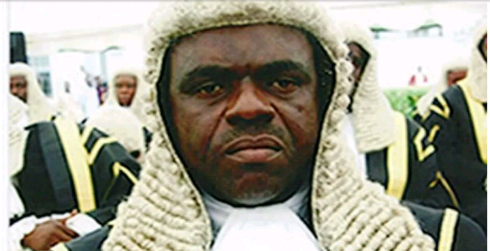Justice John Tsoho, Chief Judge of the Federal High Court, is set to appear before the National Judicial Council (NJC), to address inquiries regarding a series of judgments issued by his court amid the political crisis in Rivers State.
The NJC’s review comes in response to rising concerns over the perceived inconsistencies in judicial proceedings and the jurisdictional decisions surrounding these politically charged cases.
At the center of the NJC’s inquiry are petitions filed by a coalition of lawyers, litigants, and observers, who argue that cases originating from Rivers State, traditionally heard in the Port Harcourt division, are being transferred and decided in Abuja.
This unusual shift has stirred debate, with critics questioning whether moving these cases to the nation’s capital, Abuja, might lead to undue influence on the proceedings and outcomes, given the political sensitivity of the disputes involved.
Read Also:
Gunmen Kidnap Businessman, Kill One in Rivers
One notable petitioner, prominent human rights lawyer Femi Falana, expressed his concerns in a formal letter sent last Friday. In it, Falana challenged the rationale behind shifting cases away from the Port Harcourt division, where five judges are currently available to preside over such matters.
Falana stated that judgments on these cases might be perceived as compromised when removed from their local jurisdiction, thereby casting doubts on the impartiality of the judiciary in politically volatile cases.
The concerns raised in these petitions also touch upon recent decisions by judges in Abuja, such as Justice Joyce Abdulmalik, who, despite requests to return cases to Port Harcourt, ruled that only the Chief Judge has the authority to assign or reassign cases.
Additionally, the Chief Judge of the Rivers State High Court is expected to appear before the NJC next week to discuss conflicting orders issued by certain state judges, further illustrating the complexities of judicial management amid political strife.




